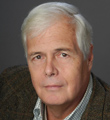
Gene Lyons
The little mud village on the Potomac
http://www.jewishworldreview.com | "We are in great haste to construct a magnetic telegraph from Maine to Texas; but Maine and Texas, it may be, have nothing important to communicate." — Henry David Thoreau, "Walden"
It's not necessary to be a disciple of Thoreau, that great 19th century American crackpot, to wonder if the mass media aren't dragging civilization backward. And no, I'm not talking about Paris Hilton, although the sudden fame of this vapid heiress whose only talent appears to be shamelessness is definitely symptomatic.
I'm talking about the great paradox of contemporary political life: the more sophisticated the technology, the more primitive the message. At the rate American public discourse is decaying, we're going to end up in holes in the ground like Saddam Hussein, instant-messaging grunts to each other over wireless Internet connections.
Visit almost any politically minded Web site, left or right, where it's not unusual to find total strangers exchanging everything from sexual taunts to death threats under the cloak of anonymity. On the liberally-oriented Eschaton weblog, one "Trav McGee," presumably named after the John D. MacDonald character, recently opined that "Dean-a-hores ... deserve to perish." He was quickly pilloried with references to jackboots, swastikas and psychosexual disorders.
Still, it's not bloggers and anonymous e-mailers who are driving American political discourse back toward the Stone Age. Apart from pornography, nothing travels through cyberspace faster than quackery and superstition. So it was probably inevitable that the Internet and satellite TV would provide an outlet for themes previously limited to supermarket tabloids: not merely celebrity sex scandals, but also psychics, flying saucer enthusiasts and conspiracy theorists.
It's the behavior of those at the very apex of the media pyramid that's largely responsible for the decay of public discourse. Seemingly distracted by their own fame, Washington celebrity pundits increasingly substitute rumor, speculation, augury, soothsaying and mind-reading for news and cogent analysis of public issues.
Consider the performance turned in by ABC's Ted Koppel as emcee of last week's New Hampshire Democratic presidential debate. Once a widely respected journalist, Koppel devoted, by actual count, his first 19 questions to polls, personalities and money:
"General Clark ... it is rumored, however, that you are a favored candidate by the Clinton family. If Mrs. Clinton, Senator Clinton, or former President Clinton were to offer you his endorsement, would you take it?"
"Senator Lieberman, you've got a bit of a shot to the solar plexus today ... Have your chances received a bad shock today?
So relentlessly did Koppel hew to triviality, noted Dan Kennedy in the Boston Phoenix that "Koppel actually pulled off the heretofore unimaginable feat of giving Dennis Kucinich a moment in the spotlight.
"'I want the American people to see where the media takes politics in this country," Kucinich said "To start with endorsements — we start talking about endorsements, now we're talking about polls and then we're talking about money. Well, you know, when you do that, you don't have to talk about what's important to the American people."
The crowd went wild.
And why did Al Gore endorse Howard Dean? Chatting with CNN's Paula Zahn, Joe Klein yucked it up about how the guy who said he "invented the Internet" hankered after Dean's popularity with "techies." Both had to know that Gore never made such a claim.
In a subsequent Time column, Klein read Gore's mind: "The two have so much in common. They're the angriest guys in the Democratic Party ... Dean and Gore are angry in different ways, though. Gore's anger is personal. He is angry at Bill Clinton (yes, for Monica Lewinsky but also for being such an impossible act to follow). He has been angry at Hillary Clinton since 1993, when the elected Vice President found himself competing with the unelected Vice President for Bill Clinton's attention. He is angry with Joe Lieberman ..."
Enough. Klein, of course, got rich and famous by lying about his authorship of "Primary Colors," a novel marketed as insider gossip. If he had sources for any of this stuff, he neglected to say so. Irrational Democratic anger is a favorite GOP theme. Endorsing Dean, Gore argued that the United States had never in its 200-year history "made a worse foreign policy mistake" than invading Iraq. Who cares? It's more fun to play clairvoyant.
Last week, the pundit chorus told us Dean's nomination was inevitable, although no votes have been cast. Then came Saddam's capture, by my count the fourth epoch-making event in Iraq in 2003, after the fall of Baghdad, Bush's "Mission Accomplished" carrier landing and his artificial turkey Thanksgiving photo op. Dean's candidacy was pronounced DOA and Bush's re-election assured.
And so it went, another week of rumor-mongering, mind-reading and soothsaying in the little mud village on the Potomac.
Comment on Gene Lyons' column by clicking here.

